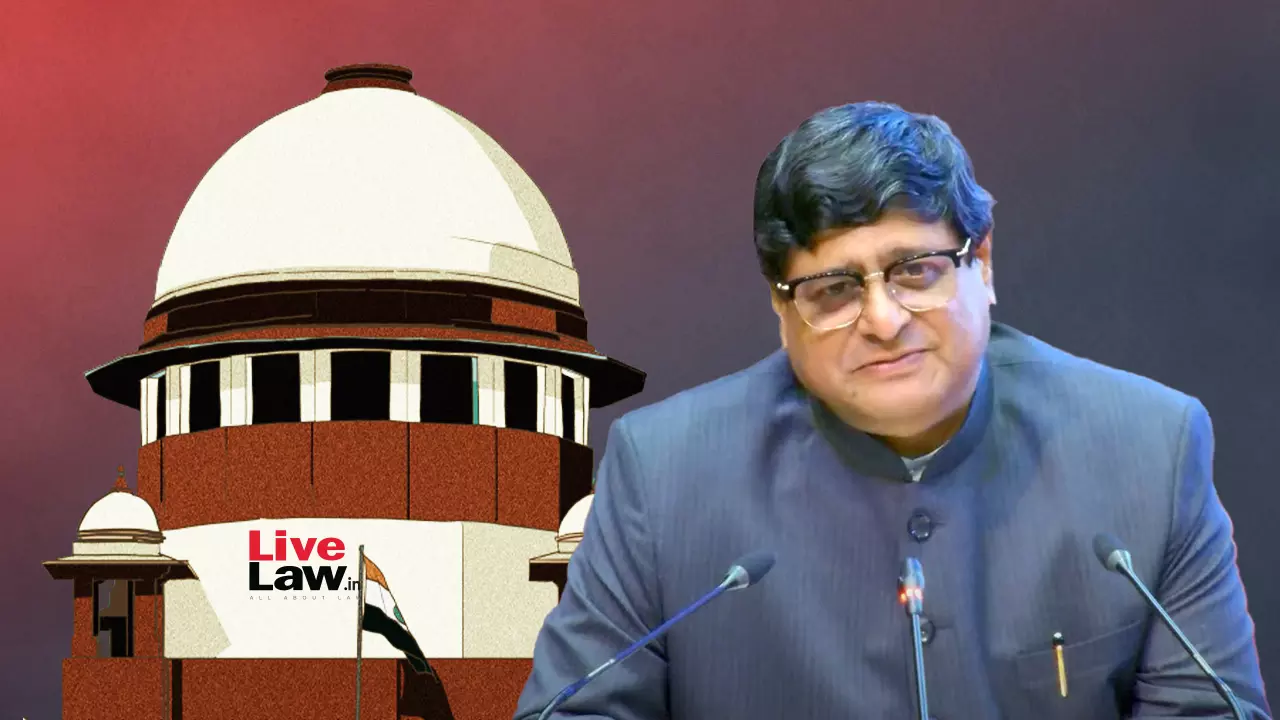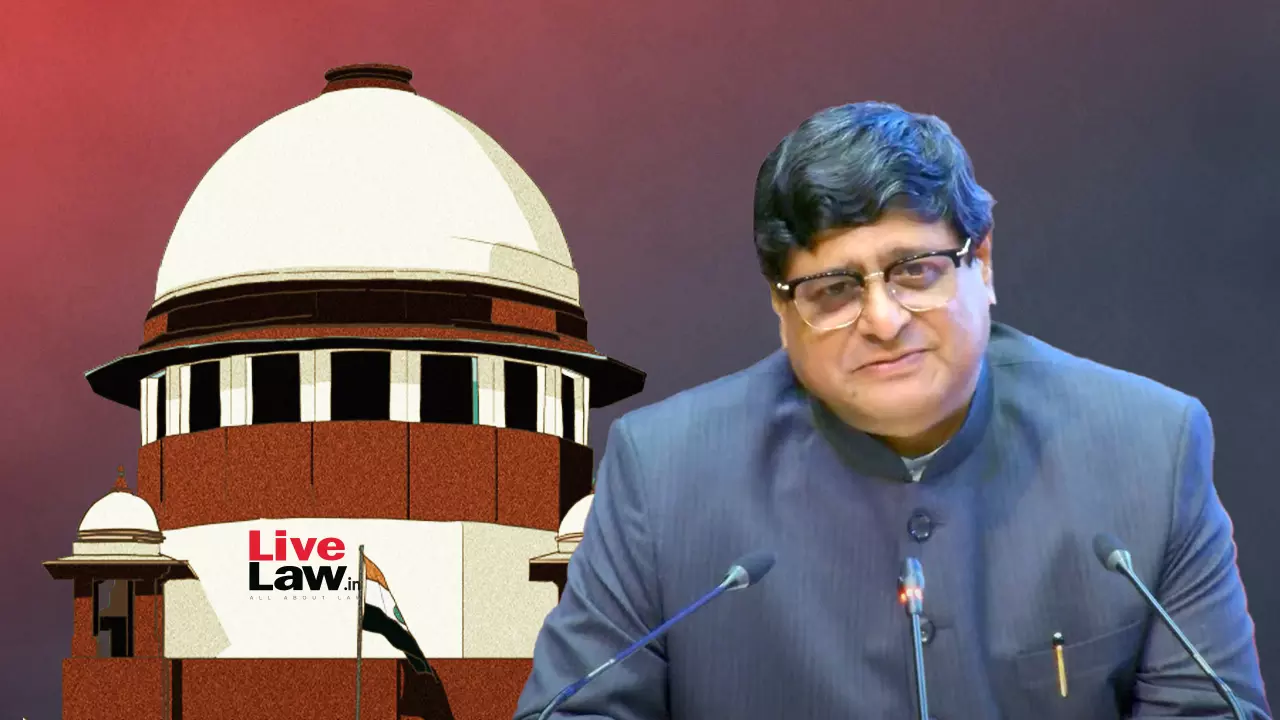A Distinct Voice Not Swayed By Majoritarian Din


These are the days when many Judges feel tempted to regurgitate the talking points of the majoritarian ideology, either out of conviction or to ingratiate themselves with the powers that be. Judgments and observations mirroring social prejudices or amplifying populist sentiments without legal scrutiny are becoming increasingly frequent.
Justice Sudhanshu Dhulia, who demitted office on August 9, bucked this trend and stayed on the course of his Constitutional duty. A notable instance was his judgment in the Karnataka hijab case, where he, disagreeing with the senior judge on the bench, held that girls should not be denied public education merely because of wearing a religious scarf with their uniform. Rather than debating the essentiality of the religious practice, Justice Dhulia’s concern was on the exclusion of girls from education and the consequent infringement of their constitutional rights.
“The question this Court would therefore put before itself is also whether we are making the life of a girl child any better by denying her education, merely because she wears a hijab!,” he asked in the judgment.
Emphasising that the matter should be seen from the perspectives of a girl child who is facing difficulties in accessing education, he wrote :
“The unfortunate fallout of the hijab restriction would be that we would have denied education to a girl child. A girl child for whom it is still not easy to reach her school gate. This case here, therefore, has also to be seen in the perspective of the challenges already faced by a girl child in reaching her school.”
His judgment also emphasised fraternity and diversity, and said that schools should be places where children should learn to be sensitive and accommodative towards diverse religions and cultures.
“By asking the girls to take off their hijab before they enter the school gates, is first an invasion on their privacy, then it is an attack on their dignity, and then ultimately it is a denial to them of secular education. These are clearly violative of Article 19(1)(a), Article 21 and Article 25(1) of the Constitution of India,” Justice Dhulia concluded in his judgment, combining a rare sensitivity to the intersectional marginalisation faced by girls from a minority community with an unflinching defence of their constitutional rights against the pressures of a majoritarian onslaught.
Another notable example is his recent judgment in the Urdu language case, which came at an opportune time when the country is facing linguistic and communal polarisations. While rejecting a challenge to the display of a Municipal board in Urdu as well in a city in Maharashtra, the Judgment authored by Justice Dhulia cautioned against seeing language through a prism of communal division. “Language is a medium for exchange of ideas that brings people holding diverse views and beliefs closer and it should not become a cause of their division,” he stated. The judgment also debunked the myth that Urdu was a language which was alien to India. “ Let us make friends with Urdu and every language,” he appealed through his beautifully worded judgment which sounded as much like a pleasant Urdu shayari.
The bench led by Justice Dhulia made a significant intervention in the Bihar SIR matter, by asking the Election Commission of India to also consider Aadhaar, EPIC and ration cards as well for inclusion in the voters list. Justice Dhulia also remarked during the hearing that citizenship determination was not the remit of the ECI as it was the mandate of the Ministry of Home Affairs.
In the 9-judge bench judgment relating to the interpretation of “material resources of the community” in Article 39(b), Justice Dhulia disagreed with the then CJI DY Chandrachud’s view that the “Justice Krishna Iyer Doctrine” has become irrelevant now.
Since the wealth inequality is widening even after the adoption of the liberalisation policies, the views expressed by Justice Krishna Iyer and Justice O Chinnappa Reddy are still relevant, he wrote.
While dissenting from the majority to hold that private properties can also become “material resources of the community” which ought to be equitably distributed in terms of Article 39(b), Justice Dhulia stated :
“The Krishna Iyer Doctrine, or for that matter the O. Chinnappa Reddy Doctrine, is familiar to all who have anything to do with law or life. It is based on strong humanist principles of fairness and equity. It is a doctrine which has illuminated our path in dark times. The long body of their judgment is not just a reflection of their perspicacious intellect but more importantly of their empathy for the people, as human being was at the centre of their judicial philosophy.”
Justice Dhulia was also a part of the bench which in September 2024 passed an order denouncing the trend of “bulldozer justice”, by stating that “Alleged involvement in crime is no ground for demolition of a property.” This order was pronounced two months before another bench of the Supreme Court issued comprehensive guidelines to check the trend of demolition of properties of the accused as an instant punitive action.
In Dr.Tanvi Behel v. Shrey Goel, Justice Dhulia authored the judgment which struck down domicile-based reservations in PG Medical admissions. “Each citizen of this country carries with him or her, one single domicile which is the ‘Domicile of India’. The concept of regional or provincial domicile is alien to the Indian legal system,” he wrote in the judgment.
His bench also pulled up several metropolitan authorities for continuing the practice of manual sewer cleaning and passed several orders to ensure the payment of compensation to the families of persons who died while carrying out sewer cleaning. Further, he came to the relief of MBBS interns who were denied internship stipend in many medical colleges, by directing the payment.
Over all, Justice Dhulia had a progressive and humanistic approach to issues, and his judgments reflected his deeper understanding of the Indian society and his wide reading of law, history and literature.
In his farewell speech, Justice Dhulia said that he was more of a “judge of facts” than the “judge of law.”
“A judge of law may sometimes not be able to do justice in a given case inspite of his deep knowledge, very sharp intellect. Precisely because he’s a judge of law, he may be tied down by case laws and the law…in order to do justice in a given situation, he has to become a judge of fact. If there is really a craft, a method of judging, which has to be learnt, it is how to become a judge of fact from a judge of law where the situation demands. It’s a judge of fact who will know that before a person can live honestly, he has to live,” he said.
However, despite having a tenure of over three years in the Supreme Court, Justice Dhulia was not assigned to many significant constitutional or fundamental rights matters, and his work was largely confined to routine civil and criminal appeals.
It is vital for the Supreme Court to have more voices like Justice Dhulia’s to preserve its balance as a counter-majoritarian force and to safeguard the rights of ordinary citizens.
The author is the Managing Editor of LiveLaw. He can be reached at manu@livelaw.in

